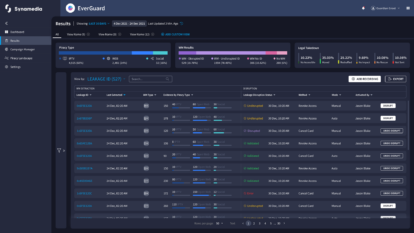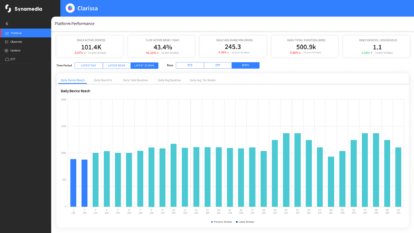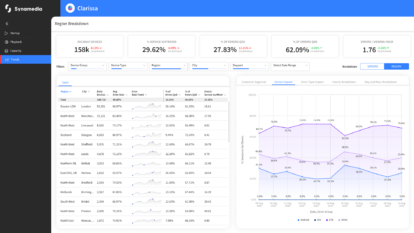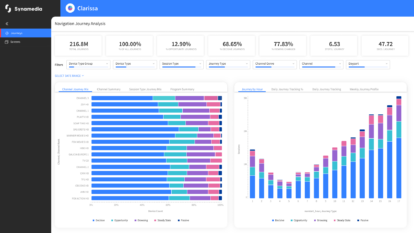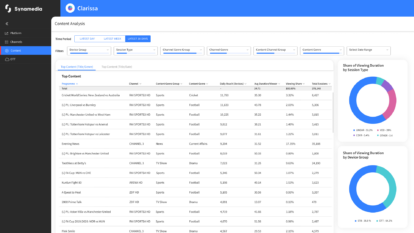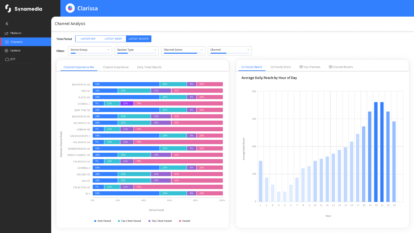LONDON – 8th March 23 – Leading video software provider Synamedia today announced that Türk Telekom, Turkey’s largest integrated telecoms operator, is consolidating video compression and processing across its TV and video platforms by deploying Synamedia virtual Digital Content Manager (vDCM). Turk Telekom has now gone live across all of its 170 channels, including 4K, on its Tivibu satellite, hybrid, and streaming services.
By consolidating workflows on a single platform, Türk Telekom will future-proof its video processing and achieve numerous benefits including improved operations, lower costs, and high-performance processing power for its 2.9 million TV subscribers.
An important part of Türk Telekom’s decision to choose Synamedia was vDCM’s advanced compression and processing capabilities, especially its highly efficient codecs that optimise bandwidth and control costs while enhancing image quality. Using rate-controlled variable bitrate compression for AVC and HEVC, Turk Telekom is already delivering cost savings through bandwidth optimisation on its OTT service.
With vDCM’s AI-based compression, Türk Telekom can deliver ultra-high quality, low latency video at scale and on any screen with 24/7 reliability. On its Direct-To-Home (DTH) platform, Türk Telekom is using Synamedia’s latest statmux technology to optimise channel rates and take advantage of high service availability, and redundancy support at the transport and service levels.
Using vDCM’s easy-to-use interface and Synamedia Video Services Manager, Türk Telekom has simplified configuration and management of its platform. vDCM’s cloud-native architecture gives Türk Telekom the flexibility to deploy on-premise then move to a hybrid or cloud model when needed.
The successful launch was the result of close collaboration between Türk Telekom, Synamedia’s local partner MeraTech, and Synamedia’s engineering teams, with all team members contributing to the design and implementation of an effective platform.
Ümit Barak, Broadcasting Systems Manager and Deputy General Manager of Technology, at Türk Telekom said, “We chose to partner with Synamedia because its solution ticked all of our boxes. Synamedia has demonstrable leadership in compression and its technologies exceeded our availability and redundancy requirements for this critical infrastructure. We conducted extensive evaluations, including video quality benchmarking, and we are now secure in the knowledge we have the most comprehensive solution on the market giving us the scalability, versatility and best-in-class video quality to meet our future needs.”
Frank Van de Vyver, VP of Engineering, Video Network, at Synamedia, commented, “By selecting our software-centric solutions, Türk Telekom is able to protect and manage its video workflows even at the massive scale needed to support its millions of subscribers. We look forward to working with Türk Telekom as it extends Synamedia processing across all its channels and reaps the benefits of using the latest compression technologies for this consolidation.”
For press and analyst queries, please contact:
Rachel Postlethwaite (EMEA)
About Synamedia
We’re trusted by service providers and content owners to deliver, enrich, and protect video. The flexibility and agility of our cloud and SaaS products enable customers of all types and sizes to launch, monetise, and scale services at speed. Our award-winning portfolio includes advanced advertising, business analytics, broadband and streaming video platforms, intelligence-led anti-piracy, and video network cloud and software solutions. Synamedia is backed by the Permira funds and Sky.
Twitter: @SynamediaVideo
LinkedIn: Synamedia
